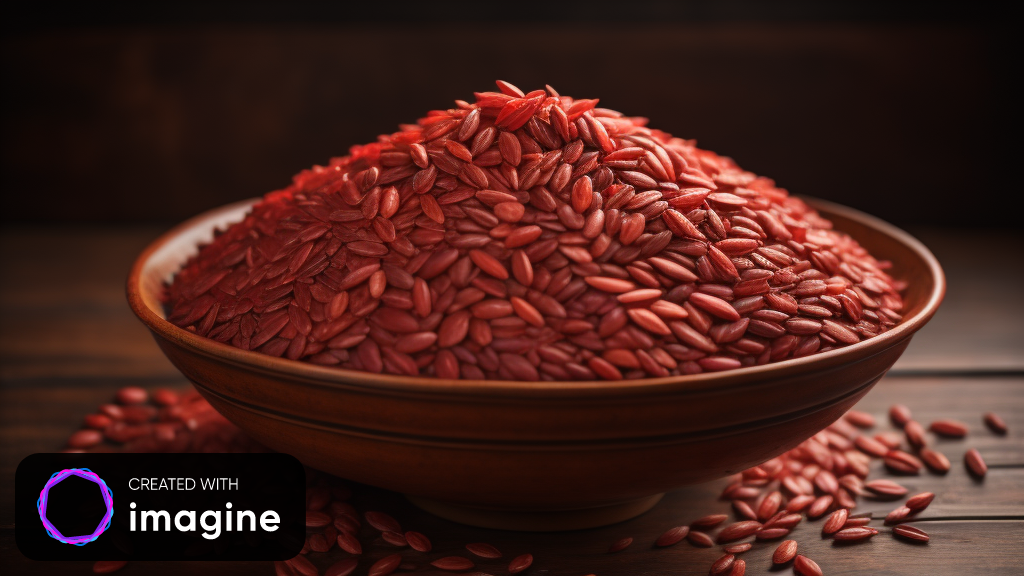A Culinary Delight: Mastering the Art of Cooking Red Rice
Introduction:
Red rice, with its rich nutty flavor and vibrant color, is a wholesome and nutritious alternative to traditional white rice. Packed with antioxidants and essential nutrients, cooking red rice might seem intimidating at first, but with a few simple steps, you can elevate your culinary skills and savor the unique taste of this delightful grain. In this guide, we’ll walk you through the process of cooking red rice to perfection.
Ingredients:
1. Red rice
2. Water or broth
3. Salt (optional)
4. Olive oil or butter (optional)
Step 1: Rinse the Red Rice
Start by rinsing the red rice under cold water to remove excess starch and impurities. This step helps prevent the rice from becoming overly sticky during cooking.
Step 2: Soak (Optional)
While not mandatory, soaking red rice for 30 minutes to an hour can enhance its texture and reduce cooking time. If you’re short on time, you can skip this step and proceed directly to cooking.
Step 3: Choose the Right Cooking Pot
Select a heavy-bottomed pot with a tight-fitting lid. This ensures even heat distribution and helps prevent the rice from sticking to the bottom.
Step 4: Measure and Add Water
For every cup of red rice, use about 2 to 2.5 cups of water or broth. Adjust the liquid based on your desired rice texture – less water for firmer rice and more water for a softer, creamier consistency.
Step 5: Seasoning
Add a pinch of salt to enhance the rice’s natural flavors. For an extra layer of taste, consider incorporating olive oil or butter. Stir the ingredients gently.
Step 6: Bring to a Boil
Place the pot over medium-high heat and bring the water to a boil. Once boiling, reduce the heat to low, cover the pot with the lid, and let the rice simmer.
Step 7: Simmer and Cook
Allow the red rice to simmer for approximately 30-40 minutes. Keep an eye on the water level, and if needed, add more water to prevent the rice from sticking to the pot.
Step 8: Let it Rest
After the cooking time is complete, remove the pot from the heat and let the red rice sit, covered, for an additional 5-10 minutes. This allows the grains to absorb any remaining moisture and ensures a fluffy texture.
Step 9: Fluff and Serve
Gently fluff the red rice with a fork to separate the grains. Serve it as a side dish or as a base for a variety of savory or sweet dishes.
Conclusion:
Cooking red rice is a rewarding culinary experience that introduces a burst of color and nutrition to your meals. With these simple steps, you can confidently prepare red rice, adding a wholesome touch to your culinary repertoire. So, embrace the vibrant world of red rice and delight in its unique flavor and texture.
Health benefits of red rice
Red rice, often hailed as a nutritional powerhouse, is more than just a colorful addition to your plate. With its distinct nutty flavor and impressive array of health benefits, red rice stands out as a wholesome grain that can contribute to your overall well-being. In this article, we explore the numerous advantages of incorporating red rice into your diet.
1. Rich in Antioxidants:
Red rice owes its vibrant hue to natural pigments known as anthocyanins. These antioxidants help combat oxidative stress in the body, protecting cells from damage and reducing the risk of chronic diseases.
2. Abundant in Fiber:
Fiber is a crucial component for digestive health, and red rice is an excellent source. The fiber content aids in maintaining regular bowel movements, preventing constipation, and promoting a healthy digestive system.
3. Low Glycemic Index:
Red rice has a lower glycemic index compared to white rice. This means it causes a slower increase in blood sugar levels, making it a favorable option for individuals managing diabetes or those looking to maintain stable energy levels.
4. Essential Nutrients:
Red rice is packed with essential nutrients, including B-vitamins, iron, zinc, and magnesium. These nutrients play a vital role in energy metabolism, immune function, and overall well-being.
5. Heart Health:
The fiber and antioxidants in red rice contribute to heart health by reducing cholesterol levels and promoting a healthy cardiovascular system. Incorporating red rice into a balanced diet can be a proactive step in maintaining cardiovascular well-being.
6. Weight Management:
The fiber content in red rice helps create a feeling of fullness, which can aid in weight management by reducing overall calorie intake. This makes red rice a satisfying and nutritious option for those striving to maintain a healthy weight.
7. Gluten-Free Alternative:
Red rice is naturally gluten-free, making it a suitable choice for individuals with gluten sensitivities or those with celiac disease. It opens up a variety of options for individuals seeking diverse and gluten-free grain alternatives.
8. Potential Cancer Protection:
The antioxidants in red rice, particularly anthocyanins, have been linked to potential cancer protection by neutralizing free radicals in the body. While more research is needed, the presence of these compounds suggests a positive impact on cellular health.
Conclusion:
Incorporating red rice into your diet goes beyond adding a splash of color to your meals – it’s a conscious choice for promoting health and well-being. From its antioxidant-rich nature to its fiber content and essential nutrients, red rice stands as a versatile and nutritious grain. As you explore the world of wholesome foods, consider embracing the health benefits that red rice brings to the table, making each meal a step toward a healthier, more vibrant you.
Also read 7 insights into the world of apples
Buy red rice Here


[…] 7 Nourishing Reasons to Indulge: The Red Rice Power Bowl Recipe for Optimal Wellness […]
[…] 7 Nourishing Reasons to Indulge: The Red Rice Power Bowl Recipe for Optimal Wellness […]